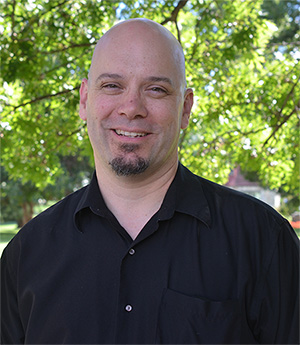![]()
Every semester that I teach the Capstone Seminar in Christian Life class, students write a spiritual biography paper that describes their spiritual journey, including how their time at JBU has influenced their relationship with God. Reading these papers is an incredible privilege as students let me peek inside their private lives and hear them talk honestly about their faith.
It is also a very difficult process that makes me sad sometimes. I’m saddened by the hurt that I read about, the ways in which the sinfulness of this world (our own and others’) leaves scars in our lives. But there is something else that makes me sad.
I’m amazed by the different experiences students have as they try to deal with their struggles. For some, JBU is a place of safety in which they’ve found friends, professors and staff who have helped them work through a lot of difficult things in life. While they’ve still dealt with real problems, JBU has been a safe place for these students to struggle or doubt or grieve.
Others tell a different story. Many of these students feel that they have to hide their struggles so that they will look “right” to other people. Consequently, they often struggle alone with doubt, drinking problems or sexual identity. Many feel very lonely and isolated, and some feel inadequate because they think they don’t fit with everyone else on campus. Others get angry because they get tired of the phoniness – their own and others’. They realize that everyone can’t have it all together, but they still suffer in silence because they’re not sure JBU is a safe place to struggle.
And this makes me sad.
It makes me sad because, as much as we use the word community on campus, if we are somehow communicating that you can’t be honest about what is really going on in your life, we aren’t living in true community.
It makes me sad because I can’t think of a faculty or staff member on campus who doesn’t care deeply about students or who wouldn’t listen compassionately to them (although there may be some).
It makes me sad because almost every student I know is willing to listen well to friends who are hurting.
It makes me sad because community without honest vulnerability is not community.
I know that there is pressure to act a certain way when you have to sign a Community Covenant that you may not completely agree with. I know there are myths about what happens to students who come out or who admit to a drinking problem or who wonder if they really believe that Christianity is true anymore. I hear those questions from people in my classes and in my office.
I also know how honored I feel whenever a student comes to my office and cautiously admits, “I think I’m gay” or “I’m so angry at God and I’m not sure I believe in him anymore.” Those conversations are some of my favorite because I know that these students are being completely and courageously honest, and being honest with God is the best place to start.
What makes me feel even better is that I hear from students that when they do have the courage to have that conversation with an RD or professor or one of the campus counselors, almost every time they come away from that conversation with a sense of relief. They find someone who cares and is willing to talk compassionately about what is really going on in life. They find someone who is not looking to get them in trouble, but is most interested in being an example of God’s love to them and helping them process the hard things in their lives.
It’s hard sometimes to trust those stories though. It’s hard to trust that people will be open with you like they have been open with others. When life is hard, and you think that you’re the only one on campus who is different, and you’re worried about getting in trouble or being a bad Christian, it’s hard to trust that people care more about you than about your behavior or your beliefs. When you’re in that situation (and you most likely will be at some point) I hope and pray that you will take the risk of honest vulnerability.
I would like to give you one specific task to help prepare you for those times. Please think about one or two faculty or staff members and one or two friends who you think care enough about you to listen well to the worst thing you could imagine confessing. Think about them now, when times are good because when times are bad, Satan convinces us that no one cares and that you’re not worth caring about.
If you’re in one of those dark places right now and can’t think of someone like that, please come and talk to me, or someone else in the Office of Christian Formation (Tracy Balzer, Lisa Corry or Frank Huebert) or someone in the counseling office. We are glad to listen, and we will listen confidentially. Take the risk of discovering if JBU can be a safe place for you.





